Related Research Articles
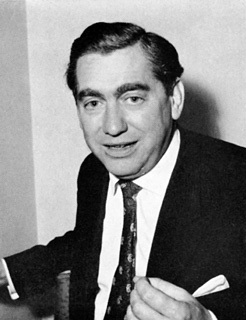
Anthony John Hancock was an English comedian and actor.

Francis Alick Howard, better known by his stage-name Frankie Howerd, was an English actor and comedian.

Barry Charles Cryer was an English writer, comedian, and actor. As well as performing on stage, radio and television, Cryer wrote for many performers including Dave Allen, Stanley Baxter, Jack Benny, Rory Bremner, George Burns, Jasper Carrott, Tommy Cooper, Ronnie Corbett, Les Dawson, Dick Emery, Kenny Everett, Bruce Forsyth, David Frost, Bob Hope, Frankie Howerd, Richard Pryor, Spike Milligan, Mike Yarwood, The Two Ronnies and Morecambe and Wise.
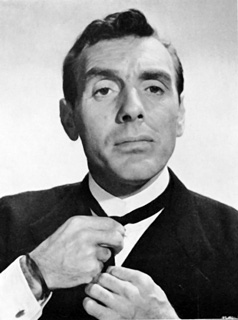
Eric Sykes was an English radio, stage, television and film writer, comedian, actor and director whose performing career spanned more than 50 years. He frequently wrote for and performed with many other leading comedy performers and writers of the period, including Tony Hancock, Spike Milligan, Tommy Cooper, Peter Sellers, John Antrobus and Johnny Speight. Sykes first came to prominence through his many radio credits as a writer and actor in the 1950s, which include collaboration on some scripts for The Goon Show. He became a TV star in his own right in the early 1960s when he appeared with Hattie Jacques in several popular BBC comedy television series.

Hattie Jacques was an English comedy actress of stage, radio and screen. She is best known as a regular of the Carry On films, where she typically played strict, no-nonsense characters, but was also a prolific television and radio performer.

The BBC Light Programme was a national radio station which broadcast chiefly mainstream light entertainment and light music from 1945 until 1967, when it was replaced by BBC Radio 1 and BBC Radio 2. It opened on 29 July 1945, taking over the long wave frequency which had earlier been used – prior to the outbreak of the Second World War on 1 September 1939 – by the BBC National Programme.

Galton and Simpson were a British comedy scriptwriting duo, who wrote for radio, television and film, consisting of Ray Galton OBE and Alan Simpson OBE. They are best known for their work with comedian Tony Hancock on radio and television between 1954 and 1961 and their long-running television situation comedy, Steptoe and Son, eight series of which were aired between 1962 and 1974, they had an association lasting 60 years.
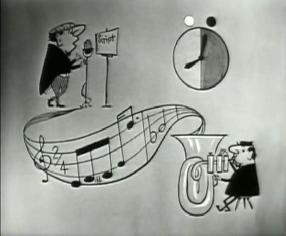
Hancock's Half Hour was a BBC radio comedy, and later television comedy series, broadcast from 1954 to 1961 and written by Ray Galton and Alan Simpson. The series starred Tony Hancock, with Sidney James; the radio version also co-starred, at various times, Moira Lister, Andrée Melly, Hattie Jacques, Bill Kerr and Kenneth Williams. The final television series, renamed simply Hancock, starred Hancock alone.
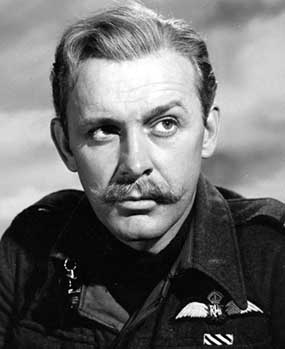
William Henry Kerr was a British and Australian actor, comedian, and vaudevillian.
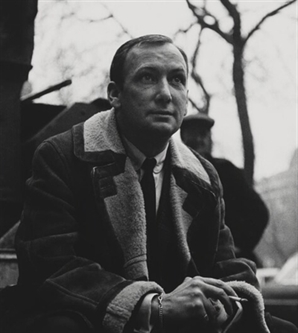
Johnny Speight was an English television scriptwriter of many classic British sitcoms.

James Keith O'Neill Edwards, DFC was an English comedy writer and actor on radio and television, known for his roles as Pa Glum in Take It from Here and as headmaster "Professor" James Edwards in Whack-O!.
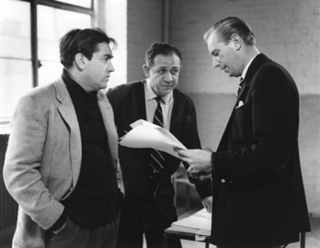
Wilfred Duncan Wood was a British comedy producer, director and writer, who has been described as "the founding father of the British TV sitcom".
Workers' Playtime was a British radio variety programme transmitted by the BBC between 1941 and 1964. Originally intended as a morale-booster for industrial workers in Britain during World War II, the programme was broadcast at lunchtime, three times a week, live from a factory canteen "somewhere in Britain". Initially, it was broadcast simultaneously on both the BBC Home Service and Forces Programme, then from 1957 onwards solely on the Light Programme. For all its 23 years each show concluded with the words from the show's producer, Bill Gates: "Good luck, all workers!"
David Freeman was a British film and television writer, working chiefly in comedy.
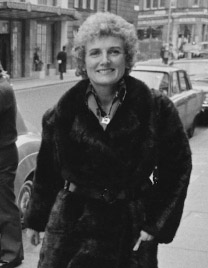
Beryl Frances Vertue was an English television producer, media executive, and agent. She was founder and chairman of the independent television production company Hartswood Films.
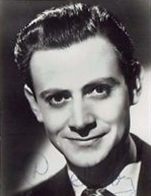
Derek Roy was an English comedian, whose public profile was at its greatest in the late 1940s and early 1950s.
Associated London Scripts (ALS) was a writers' agency organised as a co-operative which involved many leading comedy and television writers of the 1950s and 1960s.
Hattie Jacques was an English actress who appeared in many genres of light entertainment including radio, film, television and stage. Jacques's career spanned from 1939 until her death in 1980. She is best remembered for her appearances in fourteen Carry On films and for her professional partnership with Eric Sykes.
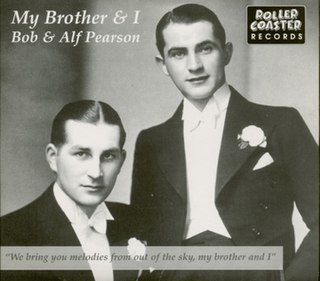
Bob and Alf Pearson were an English musical variety double act, consisting of brothers Robert Alexander Pearson and Alfred Vernon Pearson, who were mainly known for their singing of songs as a duo in close-harmony. Their career together lasted over 50 years, spanning stage, radio, television and gramophone records.
Alastair Ninian Scott Johnston was a British radio producer working for the BBC, mainly on comedy programmes.
References
- ↑ "Variety Band-Box". Radio Times . Vol. 82, no. 1065 (National ed.). BBC Publications. 25 February 1944. p. 7. Retrieved 16 February 2020– via BBC Genome Project.
- ↑ "Variety Bandbox". Radio Times . Vol. 116, no. 1507 (Television ed.). BBC Publications. 26 September 1952. p. 19. Retrieved 16 February 2020– via BBC Genome Project.
- 1 2 3 4 Variety Bandbox
- ↑ Ray Galton & Alan Simpson interview
- ↑ Frankie Howerd
- ↑ Tony Hancock 1924-1968
- ↑ Arthur English obituary from The Independent
- ↑ Bill Kerr 1924-
- ↑ Eric Sykes
- ↑ Woolf Phillips obituary from The Guardian